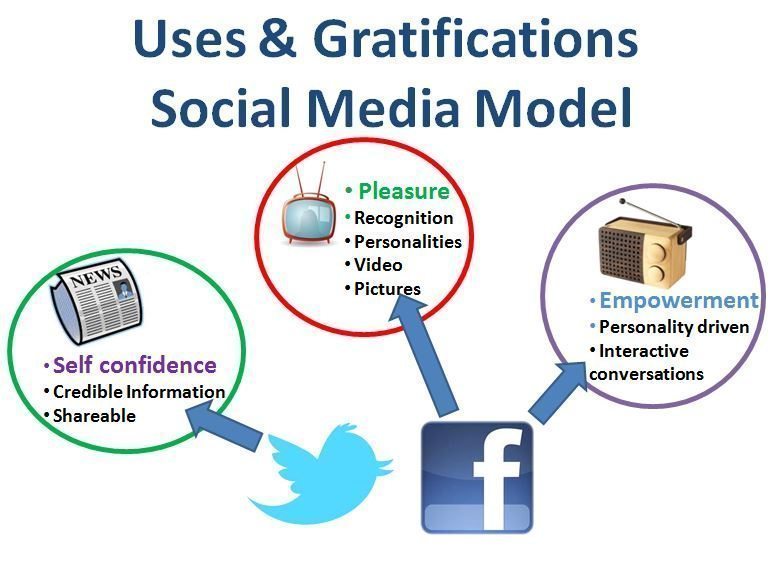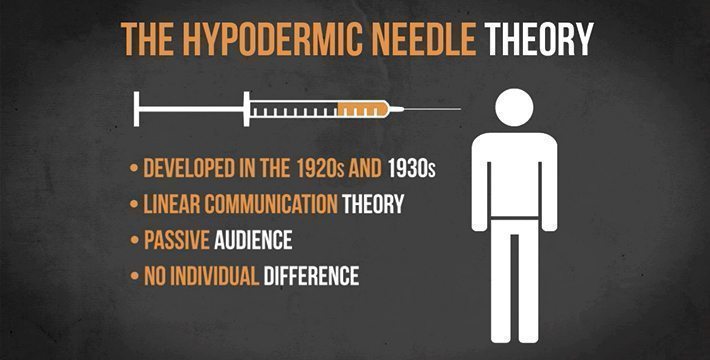
Uses and gratifications theory attempts to explain the uses and functions of the media for individuals, groups, and society in general.
The theoretical foundation of this theory lies in the social origin of need. I use the media with an active approach, and it is tough to spend time watching television, so usually, I search news online through YouTube, Twitter or blogs or typing the topic into Google and look for the various results.
I do sometimes read important international newspapers on my iPad, but then I always try to verify the news from other sources.
I admit it is becoming pretty confusing. Bloggers and YouTube do their best to broadcast news with an opposite point of view of the national press and television reporters. However, both national newspapers and television newsrooms do not broadcast opinions. They can only broadcast substantiated facts.
Sometimes the alternative media can make sense, but there are times when it appears there is a conspiracy of the Lobbies and the government for each topic or item that exists on the earth, from the milk to the toothbrush.
Apparently, the effort of providing contrary information to what the Big channels broadcast is becoming the unique selling point for those small bloggers and YouTube Journalists. And it looks like the success of those independent forms of media is directly proportional to the conspiracy theories they can discover or to the capacity to entirely differ from the original news generated from the known channels.
This attempt as we discussed last week is very valuable and gives excellent potential concerning freedom to this generation, but then other issues surface. If the only way to get noticed is to be entirely different from the original news, we risk that the information will be distorted and twisted just to satisfy their private agenda.
The only way I encourage others in my field to use and interact with media outlets is to send them links from the various sources. Some of my employees are older, and it’s difficult to explain and convince them of the importance to communicate through or take advantage of the new media.
Also, I feel there are time restraint factors, and we cannot force other parties that are engaged in business relationships with us to communicate through new mediums, even when is not the most efficient form of communication. Our need for gratification cannot lead us to be abusive and disrespectful towards other people needs. Sometimes a phone call or an email can do the work without the necessity of getting too fancy about simple communications. People have different needs. I satisfy my cognitive need by participating in online courses, forums, and blogs. My diversion need is gratified on YouTube listening to music or other topics that can distract me.
Personal relationship and Personal integrative needs in my case are not that strong I would guess probably are satisfied using LinkedIn, but I need to admit that my personality and characteristics do not really meet the gratification criteria through social media about that particular need.
The need for recognition and self-esteem is satisfied in my private life, and I am happy I don’t feel like interacting with social media, for example through Facebook, to give out personal information.
I will report a sentence I read during my research that connects with the example that Dr.Braddock did in her Lecture of
Facebook is like giving somebody a stage and an audience and that’s one way it can bring out and magnify narcissism,” ( Dr. Elias N. Aboujaoude, a Stanford psychiatrist)
For example, my Facebook page is managed by some of my employees, and I sometimes log in, so I don’t miss the ability to analyze the phenomena. I could use it eventually for business purposes, but it’s really annoying for me to have my life displayed on it. It seems that I do not belong to myself anymore. The issue here is that I notice not only that Facebook users tend to satisfy their narcissism, but they just engage with profiles that exhibit similar behavior. If I only write about business or other economic topics, people get bored and don’t engage, so my Facebook profile is not successful. To attract users, I need to copy their style and their behavior. So I will think about posting pictures of my Ferrari, of my yacht, of all the places I regularly visit around the world, and all the cool stuff I do. This is the only way to build a consistent number of followers from which I can eventually use for business purposes
An excellent example of the gratification theory comes from the Harlem video. Viewers thought at the onset that the videos were products of individuals for entertainment purposes. In the end, they discovered that the video was the creation of YouTube and Twitter for self-promotion.
George Miller created phenomena when he filmed himself and his friends performing a dance he called the “Harlem Shake” when in fact it was not the Harlem Shake at all. This inspired others from Florida and Australia to make their own versions and post them on YouTube with limited success. Actual record labels and professional disk jockeys took up the gauntlet and made, even more, versions, showed them on YouTube and promoted them with their Twitter accounts.
The use of YouTube and Twitter by corporations to push the “Harlem Shake” videos propel into the viral sphere is a prime example of the Uses and Gratifications PR theory. Corporate executives saw the potential for these mediums to fill specific entertainment needs and thus grow profits exponentially. Everyone bought into the action which made the video the sensation that it became.
“Harlem Shakes” took a different route to fame than other videos. Generally, videos are made by studio professionals, and then students make their own versions and parodies. In this instance, the students made the videos first and then Google investors, Marker Studios and the Mad Decent record label jumped on the bandwagon and reaped the rewards of the “Harlem Shale’s” viral success.



